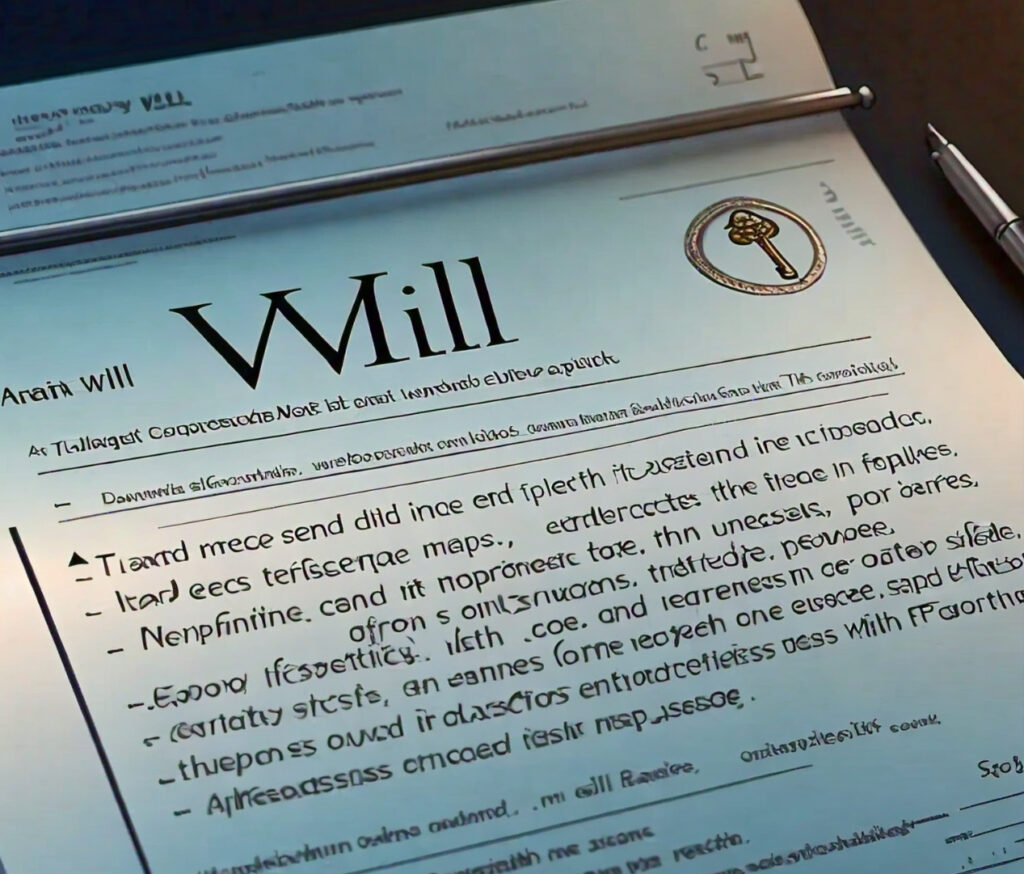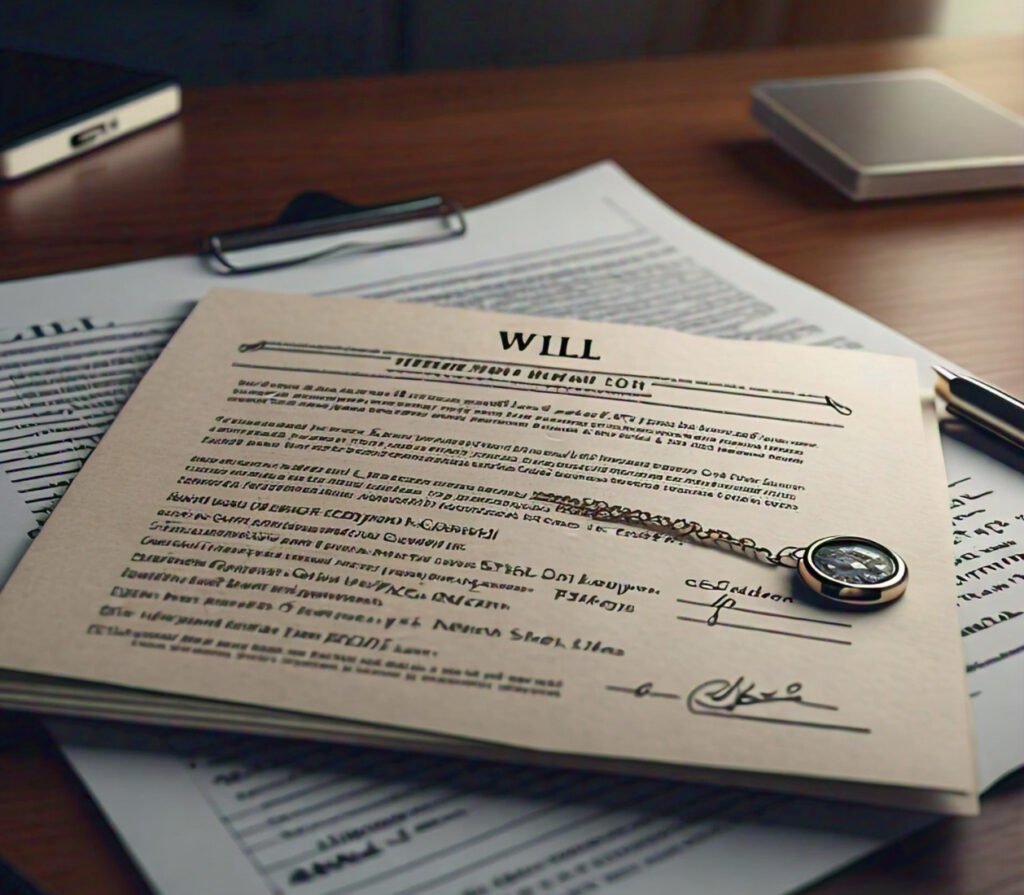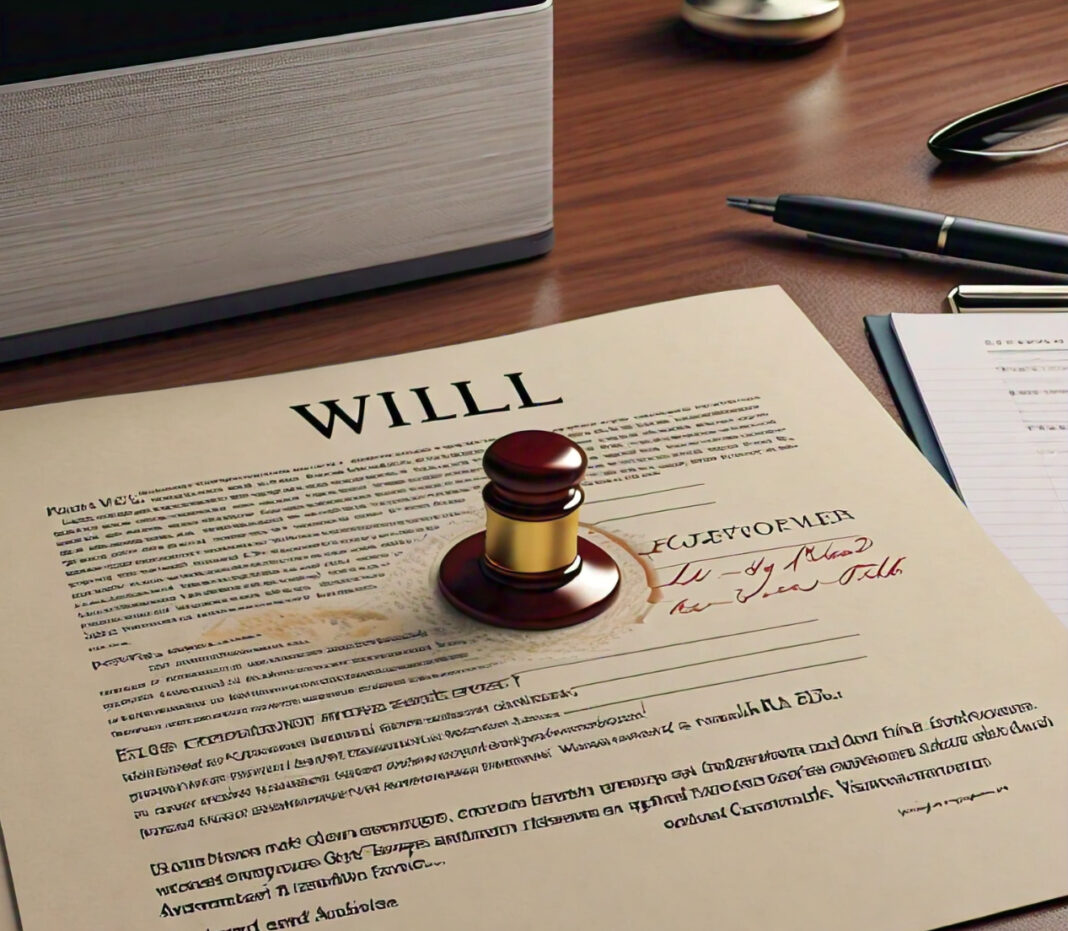Is there anything that you have ever thought would happen if you died all of a sudden? Who would take care of your kids? How would your loved ones settle your affairs? It’s not comfortable asking these types of questions, but they are the types that need to be asked. This is where the will comes in.

A will is a legal document that sets out how you would wish your assets distributed and dependents provided for in the event of your death. Ironically, despite all the importance it holds, several people procrastinate in making a will, as if this were for old or rich people alone. This couldn’t be farther from the truth.
It is an elaborative guide as far as having a will goes, irrespective of age or financial status. We consider what a will is, why it is important, what happens upon one’s death without a will, and how one is made. By the time you get to the end of this article, you would have known why a will, rather than just being important, is a necessity for all people.
What is a Will?
Before we discuss why you need a will, let us define what a will is.
Definition of a Will
A will, otherwise known as a last will, is a legal instrument to convey your final wishes concerning your properties and dependants. It takes effect after one’s demise.
Key Components of a Will
- Executor: The person you name to carry out the instructions in your will.
- Beneficiaries: Those who receive your property when you die.
- Assets: Everything an individual possesses, ranging from property and vehicles down to personal effects, and even bank accounts.
- Guardianship: This is where, in the event you have minor children, you are able to declare who shall take their care.
- Specific Bequests: These are particular things you want to give to specific people.
- Residuary Estate: This is all that remains after your specific bequests have been given out.
Types of Wills
- Simple Will: The regular will using which assets shall be given out to beneficiaries.
- Testamentary Trust Will: A will that, upon death, has in it a created trust for more complex estate problems.
- Joint Will: One document containing the will of a married couple.
- Living Will: It provides documentation for the type of end-of-life medical treatment desired for one’s self.
Knowing these basic terms establishes a foundation for understanding why one needs to have a will.
Why Do I Need a Will?
Now that we know what a will is, let’s dig just a little deeper into why you need one.
1. You Decide Who Gets Your Assets
In case one dies, there is no will; this means the state becomes the one that decides where your assets go through intestate laws. The law may not be in your favor since it may not dispose of your assets as you would have wished. When you have a will, you decide who gets what to make sure your hard-earned assets work for people and causes most important to you.
2. You Can Provide for Your Children
This is especially relevant if you have children under the age of majority, as it presents you with an opportunity to appoint a guardian for them. Without such an appointment in your will, this is left to the discretion of the court, and the person appointed may indeed be a person whom you would not have chosen to bring up your children.
- You Can Reduce Discord within Your Family
If you die without writing a will, this may perpetuate family disagreements on who takes what portion of the property. A will ensures that peace prevails within the family at a rather gloomy time.
- You Can Provide for Causes You Believe In
A will allows one to give assets after death to charitable institutions for causes that could be of greater importance than those of family and friends.
- You Can Plan for Taxes
The right estate planning through a will entails the ability to save your heirs from excessive estate taxes, hence leaving them with more.
- You Can Plan Your Funeral Arrangements
Although the same is not legally binding in all jurisdictions, mentioning your funeral wishes in your will can make known your desires and also help avoid any fighting or controversy within the family.
7. You Can Safeguard Your Business
If you operate a business, then a will can denote how it should be continued or sold and, in turn, give your hard work the respect due to it.
What Happens if You Die Without a Will?
Dying without having made a valid will is referred to as dying “intestate.” The results can be quite dramatic:

1. State Laws Determine Asset Distribution
Your assets would normally be divided according to your state’s intestacy laws, which might not be what you would have in mind. For example, your spouse may not get it all, while your second cousins removed whom you have never heard get more than your best friends.
2. Court Appoints an Administrator
Instead, the court will appoint an administrator who will be responsible for taking charge of your estate in place of your chosen executor. Chances are that such an administrator will be either unfamiliar with either your affairs or your wishes.
3. Possible Family Conflicts
There could be disagreement among family members on who should get what. This may result in possible litigation thus hurting the relationships among members of the family.
- Guardian Appointed by Court
If you have minor children, the court will decide who to appoint as their guardian, without your having any say in the matter as to who you think would be the best suited for such an important responsibility.
- No Charitable Bequests
Any charitable organizations or causes that you support in life will not receive anything of your estate unless specified in a will.
- Increased Costs and Time
The entire probate process in the event of intestacy will most likely be lengthier, more cumbersome, and costly compared to when there is a testate estate.
- Business Complications
In case you are one of the business owners, then intestacy surely will pose problems as to who will manage the business or sell it and this might make the business lose value or cease to exist altogether.
Who Needs a Will?
Many believe that wills are for the rich or the elderly, but this is quite a myth. Here’s who needs a will:
1. Parents of Minor Children
If you have children under the age of 18 years, a will is important in naming their guardian.
2. Homeowners
If you have real estate, a will provides that it is transferred by your wishes.
- Anyone with Assets
Even if you don’t consider yourself wealthy, you most likely have assets of one kind or another, bank accounts, vehicles, personal belongings-things you would want to be disbursed in certain ways.
- Business Owners
A will is important in concerns of instruction as to what happens with your business upon your death.
- Those with Special Wishes
If you have specific wishes regarding who gets which part of your property or other arrangements upon your death, including funeral wishes, then this is something you need to write down in a will.
6. People in Blended Families
Complex families make writing a will of particular importance if you want all your loved ones to be catered for according to your intention.
7. Those with Pets
In a will, you can state who the caregiver should be for your pets and even earmark funds for that purpose.
In short, if you are an adult, then you need a will.
How to Make a Will
Writing a will may sound like a chore, but it is not necessarily so. Here is a step-by-step guide:
1. List Your Assets
List all your assets, including but not limited to real estate, vehicles, bank accounts, investments, and personal effects.
2. Name Beneficiaries
Select who should receive said properties. Beneficiaries could be your relatives, friends, or favorite charities.
3. Name the Executor
Identify who your executor will be. Search for a person in whom you would have confidence and would be willing or able to do what the will instructs. The executor may be a family member, your friend, or even a professional executor.
- Name a Guardian for Minor Children
If you have any children under the age of 18, decide who should look after your children if you and their other parent pass away.
- Outline Who Gets What
State clearly who is to get what. Be as specific as possible to avoid confusion and disputes.
- Consider Professional Help
Even though you can easily create a will yourself, a consultation with a lawyer will make sure that your will is legally valid and, as a fact, reflects your genuine wishes.
7. Signing and Witnessing
A will has to be signed in front of two usual witnesses, and the will is to be signed by these two witnesses too.
- Store it Safely
Keep your will in a safe place and let your executor know where it is.
- Review and Update
Life changes, and so should your will. Review it every few years or after major events in your life such as marriage, birth, or extreme changes in assets.
Common Myths About Wills
There are many misconceptions about Wills, all of which could deter many from drafting one. Let me clear some of these myths:
Myth 1: “I’m Too Young to Need a Will”
Truth: At any given age, fateful events can happen. Making a will will ensure your wishes are known whenever the time may be.
Myth 2: “I Don’t Have Enough Assets for a Will”
Truth: Even though you might not own property or have substantial savings, most people have personal possessions to which they would want to assign distribution in particular ways.
Myth 3: “My Family Knows My Wishes”
This is not true because verbal wishes are not binding under the law. A will represents clear, legal instructions to avoid misunderstanding or dispute.
Myth 4: “Creating a Will is Expensive and Time-Consuming”
That is not true because professional assistance can indeed be helpful, but simple wills can be created at a relatively low cost by taking advantage of online services.
Myth 5: “Once I Create a Will, I’m Done”
Wills are not a “set it and forget it” issue; rather they often need to be revisited and updated based on any life changes and/or to ensure they continue to be valid and relevant.
Myth 6: “A Will Covers All End-of-Life Decisions”
Truth: A will doesn’t cover everything, yet it is a very important document. You’ll need other documents a living will and powers of attorney to carry out your desires concerning medical and financial decisions if you are unable to communicate your wishes.
The Emotional Aspect of Making a Will
So far, we have talked about the many practical reasons one would want or need to have a will; but let us not pass without mentioning some of the emotional considerations of this process.
Facing One’s Mortality
Setting a will, however, involves having to confront one’s mortality, which is no comfort whatsoever. Nevertheless, it is a responsible thing to do to provide peace of mind.
Showing Caring
A will is a last expression of love and concern for loved ones. It assures them that it takes care of them and relieves them from making painful decisions under grief.
Legacy
Your will enables you to provide for charitable giving and to designate who shall inherit your irreplaceable family heirlooms.
Family Dynamics
Writing a will can open a can of worms where family dynamics is concerned. Open communication can help prevent misunderstandings or hurt feelings.
Peace of Mind
Once your will is written, you will have a great deal of peace of mind, knowing you have taken care of your loved ones’ futures.
Conclusion: The Indispensable Will
As iterated severally in this article, the need to have a will cannot be underscored enough. Far from being a document only reserved for the rich or those of old age, a will is an important tool that is meant for any person keen enough to have a say in what transpires with their assets and loved ones when they are no longer present.
A will can allow you to:
Decide who receives your property Make sure your children are provided for Reduce the possibility of any disputes over who gets what amongst family members about who gets what Be remembered in some causes that mean something to you Plan for taxes Protect your business State what you want to be done with your body
Without a will stipulating these decisions, you leave it all to the state law and court decisions. These decisions, probably, are ones with which you will never agree. While the process of making a will does take some effort and is an emotionally thoughtful process, it gives peace of mind and clarity to your loved ones.
Writing a will doesn’t have to be a one-time thing, because for as long as the circumstances change around you, your will also needs to. Frequent reviews mean the will represents your wishes.
A will is much more than a simple legal document; it is one last act of love to the people you care about, one way you can leave a lasting legacy, and one way that your voice may be heard when you are no longer here to speak for yourself. In closing, is a will important? Is one of the most critical documents you will ever prepare.
Don’t wait. Start writing or rewriting your will today. Your future self and your family will thank you immensely.






